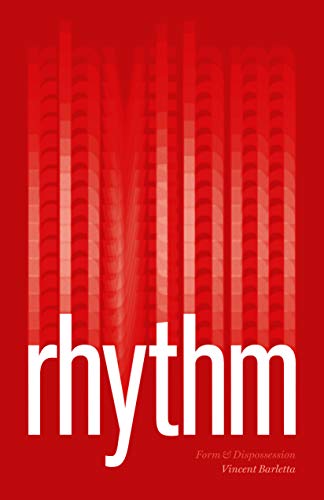V. Barletta, Rhythm : Form and Dispossession, Chicago, University of Chicago Press, 2020, 216 p.
- More than the persistent beat of a song or the structural frame of poetry, rhythm is a deeply imbedded force that drives our world and is also a central component of the condition of human existence. It’s the pulse of the body, a power that orders matter, a strange and natural force that flows through us. Virginia Woolf describes it as a “wave in the mind” that carries us, something we can no more escape than we could stop our hearts from beating.
Vincent Barletta explores rhythm through three historical moments, each addressing it as a phenomenon that transcends poetry, aesthetics, and even temporality. He reveals rhythm to be a power that holds us in place, dispossesses us, and shapes the foundations of our world. In these moments, Barletta encounters rhythm as a primordial and physical binding force that establishes order and form in the ancient world, as the anatomy of lived experience in early modern Europe, and as a subject of aesthetic and ethical questioning in the twentieth century.
A wide-ranging book covering a period spanning two millennia and texts from over ten languages, Rhythm will expand the conversation around this complex and powerful phenomenon.
- Vincent Barletta is associate professor of comparative literature and Iberian and Latin American cultures at Stanford University. He is the author of Death in Babylon : Alexander the Great and Iberian Empire in the Muslim Orient and Covert Gestures : Crypto-Islamic Literature as Cultural Practice in Early Modern Spain.

